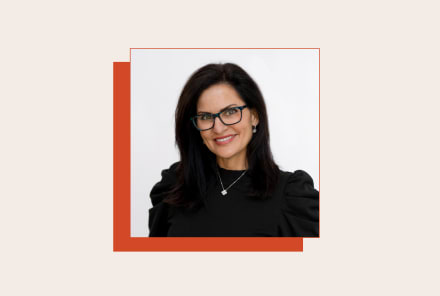Advertisement
When Is The Best Time To Take Zinc Supplements? Experts Explain


Ashley Jordan Ferira, Ph.D., RDN is Vice President of Scientific Affairs at mindbodygreen. She received her bachelor's degree in Biological Basis of Behavior from the University of Pennsylvania and Ph.D. in Foods and Nutrition from the University of Georgia.
Overview
Zinc is a trace mineral and essential micronutrient, which is probably most notable for the critical role it plays in our immune system.*
Now, given how much immunity has been a topic of conversation over the past two years, it only makes sense that you might be considering zinc supplements.
To meet baseline needs, the average daily zinc recommendation1 for adult women is 8 milligrams, while adult men should strive to get 11 milligrams, with the numbers increasing slightly for women when they're pregnant and breastfeeding.
Zinc is available in certain foods like oysters, red meat, poultry, fortified breakfast cereals, beans, nuts, whole grains, and dairy products.
That said, there is a zinc dietary gap, particularly for vegetarians and vegans.
As mbg vice president of scientific affairs Ashley Jordan Ferira, Ph.D., R.D., previously wrote: "Considering food sources alone, 15% of U.S. adults are not getting enough zinc. Because this statistic comes from nationally representative data, that means that approximately 50 million Americans have an unaddressed zinc gap."
If you do fall into the category of people who need to take a zinc supplement, you'll want to make sure you're getting the most out of it.
In addition to choosing the optimal form of zinc (more on that here)—it's important to consider the time of day you take your zinc supplement, how often to take it, and what else you're taking alongside your zinc.
Summary
When should you take zinc: morning or night?
A lot of it comes down to personal preference. "It does not matter what time of the day a zinc supplement is taken," says Deborah Cohen, DCN, RDN, associate professor in the Department of Clinical and Preventive Nutrition Sciences at the Rutgers School of Health Professions. "No matter what time, the body metabolizes zinc exactly the same way."
Ferira adds the caveat that, "For some individuals, taking zinc on an empty stomach can make them queasy, and this can be true for those people in the morning generally. A chelated zinc is more gentle, but regardless, it's an important individual consideration, as with most nutrition queries."
Also, there is some data to suggest that taking zinc at night "may help with quality of sleep,"* says Vijaya Surampudi, M.D., a professor of internal medicine at UCLA Health.
One randomized controlled trial2 in older Italian adults with difficulty sleeping found that those who took a combination of melatonin, magnesium, and zinc one hour before bed over the course of eight weeks reported "considerably better" sleep quality scores than those who took a placebo.*
Another double-blind randomized controlled trial3 on sleep quality in ICU nurses found that the nurses reported better sleep quality when they took 220-milligram zinc sulfate capsules (i.e., 50 mg of zinc) every 72 hours for a month.*
Furthermore, Ferira notes, "This clinical trial in young women4 around the time of their menstrual cycle revealed that zinc supplementation at 30 milligrams per day significantly improved quality of life, and sleep quality was one of the parameters seen to improve (albeit modestly)."*
Summary
Can you take zinc every day?
The decision to take a zinc supplement or zinc-containing complex depends on the individual's needs.
"For ensuring nutritional sufficiency of this essential mineral and for intentional, targeted support for immune function, daily zinc input is not only OK, it's prudent,"* Ferira explains.
Nutritionist Keri Gans, R.D., author of The Small Change Diet, agrees, adding that "As long as you are following the recommended dosage, zinc is safe to be consumed daily."
Additionally, Surampudi points out that there are some groups of people that have particular trouble getting enough zinc and for whom daily supplementation should be top of mind (and often, in direct partnership with their health care provider):
- People who have health issues or procedures that reduce absorption of minerals in the gut or in which surface area of the gut is more limited.
- Vegetarians and vegans, given that many of the top zinc dietary sources are meat-based. Beans and grains that vegetarians often eat have competing compounds that keep zinc from being fully absorbed and utilized by the body.
- People who regularly consume excess alcohol, because alcohol decreases the amount of zinc that the body absorbs.
Summary
How much zinc should you take?
In addition to those daily minimums we need to hit (at least 8 and 11 milligrams for women and men, respectively), pregnant women require at least 11 milligrams, while breastfeeding moms should aim for 12 milligrams each day.
The question of individualized dosing can be raised with your health care practitioner.
"It depends on if you have anything going on that can increase your needs," says Jessica Cording, M.S., R.D., dietitian, mbg Collective member, and author of The Little Book of Game-Changers.
If you or your health care provider suspect that you may have a deficiency, Surampudi says you'll likely be given a blood test (i.e., serum or plasma zinc) to confirm it. That can also help determine how much zinc you should take, she says.
As for bolstering immune resilience, Ferira takes 15 mg of zinc bisglycinate daily provided via mindbodygreen's immune support+ supplement.*
Cohen points out that the maximum daily intake level is 40 milligrams1, although your doctor may recommend that you take more if you have certain medical reasons for using a higher-potency zinc supplement.
Summary
What should you not take with zinc?
Certain foods and other minerals taken at high doses can interfere with zinc absorption, including the following:
- Bran and fiber-filled foods
- Calcium
- Phosphorus
- Copper
- Iron
"If consuming these foods and minerals, you should try and take the zinc supplement at least two hours before or after," Gans says.
For possible medication interactions (e.g., antibiotics, diuretics, etc.), it's best to check in directly with your doctor, Cording says.
Summary
Conclusion
Zinc is an important nutrient that can help support your body's immunity, among other things.*
Many people are able to get enough zinc from diet alone, but others need to supplement.
Getting the timing of your zinc supplementation right can increase the odds you'll get the levels you need.
Watch Next
Enjoy some of our favorite clips from classes
Enjoy some of our favorite clips from classes
What Is Meditation?
Mindfulness/Spirituality | Light Watkins
Box Breathing
Mindfulness/Spirituality | Gwen Dittmar
What Breathwork Can Address
Mindfulness/Spirituality | Gwen Dittmar
The 8 Limbs of Yoga - What is Asana?
Yoga | Caley Alyssa
Two Standing Postures to Open Up Tight Hips
Yoga | Caley Alyssa
How Plants Can Optimize Athletic Performance
Nutrition | Rich Roll
What to Eat Before a Workout
Nutrition | Rich Roll
How Ayurveda Helps Us Navigate Modern Life
Nutrition | Sahara Rose
Messages About Love & Relationships
Love & Relationships | Esther Perel
Love Languages
Love & Relationships | Esther Perel

















